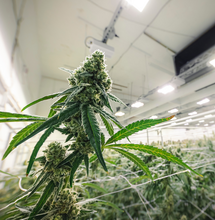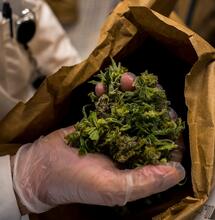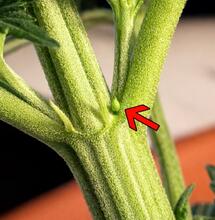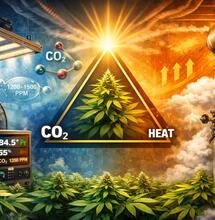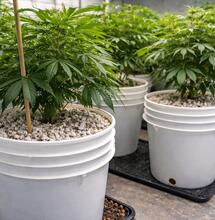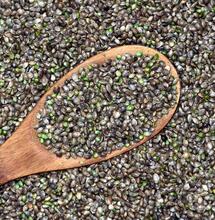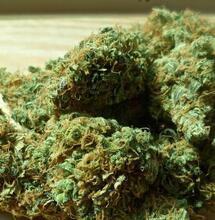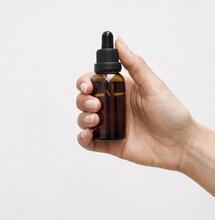Do Bees Have a Favorite Hemp Cultivar?
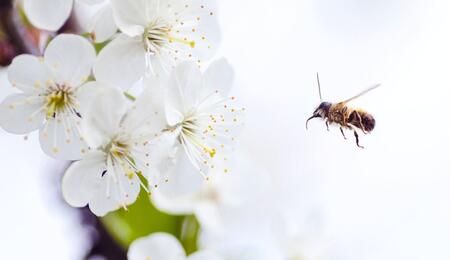
Hemp is not only good for humans. It’s also good for bees. Hemp pollen is nutrient-rich and benevolent for our pollinating friends. In a new study, scientists explored which hemp cultivars are most popular among bee populations.
A new study reveals what nutrients hemp plants are providing to pollinators, which bee species are most fond of hemp, and which hemp varieties they find the most attractive.
The study, which was published in the peer-reviewed journal Insects, focused on four different hemp cultivators. Researchers were able to observe which pollinators readily forage on hemp pollen and what nutrients the pollen provides them. It turned out, the most popular hemp variety among bees was Joey, a cultivar that was developed in 2020.
Joey Hemp Brings Joy to Bees
The new study explored hemp as a nutrient source. Researchers looked at varieties of bees foraging for pollen, and also flowers, pollen sacs and anthers.
A total of 1,286 pollinators were counted as part of this intriguing research effort. Pollinators included three different groups: honey bees, bumble bees, and sweat bees. Of the three, sweat bees accounted for almost 85% of all bees on all four hemp cultivars, although previous research has listed honey bees to be more prevalent. Sweat bees, an extremely diverse group of pollinators, are the second largest family of bees and funnily, they take their name after their attraction to sweaty people.
For the purposes of the study, around 500 grams of mature hemp flowers of each variety were harvested. The pollen samples were analyzed in a lab in Wisconsin to determine their levels of moisture, crude fiber, protein, ash, minerals, amino acids, and fatty acids contents.
“The contribution of hemp floral resources (pollen) to bee nutrition is not well understood,” the researchers wrote. “We investigated the chemical composition of pollen from four industrial hemp varieties (Canda, CFX-2, Henola, and Joey) and documented the abundance and diversity of bees on the crop using two sampling methods.”
Normally, the nutrient content of each hemp cultivar varied. The researchers also noted that bees rely on a more diverse supply of nutrients that is not limited to hemp or any single plant.
“Results showed differences in composition among the four hemp varieties,” the researchers noted. “Overall, the Joey variety was the most preferred by bees, despite expressing lower protein, amino acid, and saturated and monosaturated fatty acid content.”
They conclude: “Based on our findings, we concluded that industrial hemp pollen provides some nutritional benefits to bees. However, it is important to understand that multiple sources of pollen are needed for sustained bee survival.”
While the research effort focused on only three species of bee, the researchers further noted that other species too, like the longhorn bee, miner bee, and leafcutter bee, are also known to feed on pollen from hemp plants.
Interest to research the relationship between bees and hemp has grown over the last few years. Other studies have shown that hemp extracts can prolong the life of honey bees by providing them much-needed antioxidants. Hemp plantations have been noted to attract bees late in the season when they look for food for larvae. Which could be particularly meaningful in combating declining honey bee populations.
Read more in Soft Secrets about hemp and bees:
